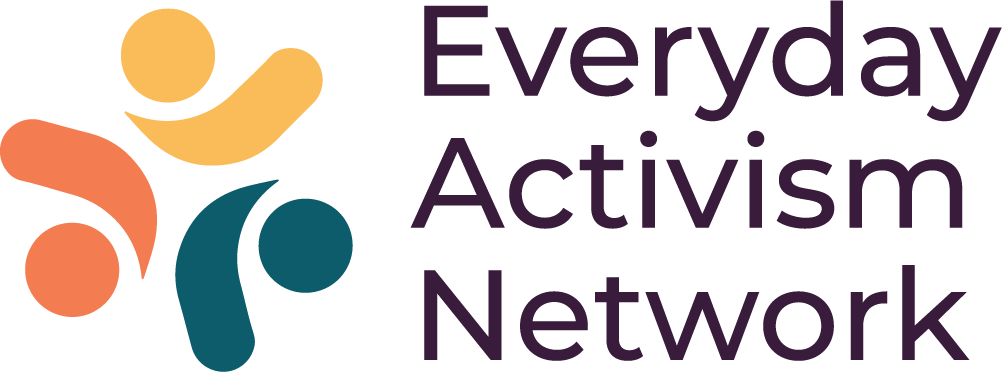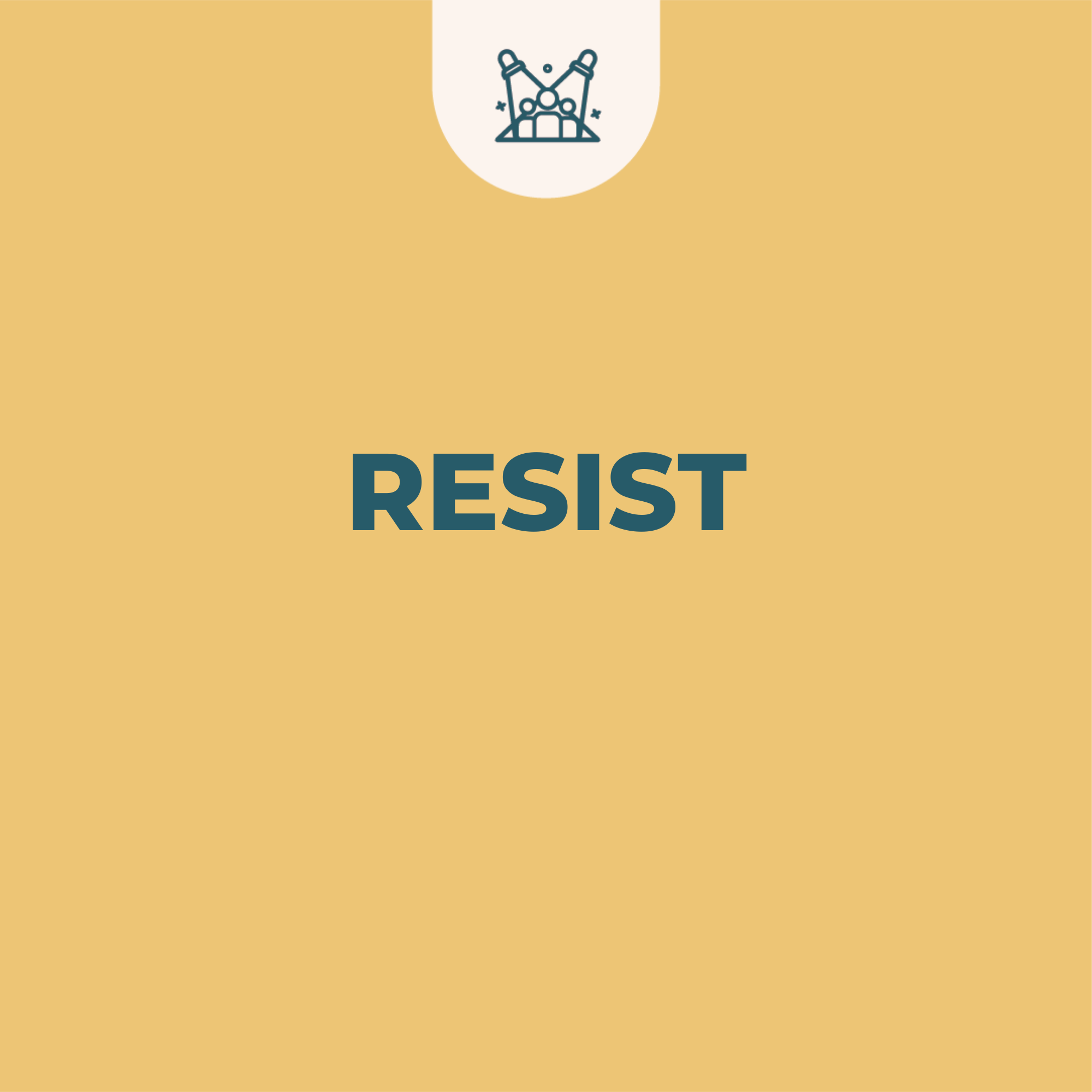
Learn and take action with guides delivered straight to your inbox
Browse guides to learn and take action on the issues you care about.
FILTER BY ISSUE
- Housing and homelessness 1
- Indigenous rights 4
- LGBTQ rights 3
- child rights 3
- criminal justice reform 3
- disability rights 1
- disaster relief/humanitarian aid 1
- economic justice 5
- environment/climate justice 3
- global issues 6
- gun control 1
- human rights & civil liberties 6
- human trafficking 4
- hunger and food insecurity 1
- immigrant & refugee rights 4
- politics 6
- public health 4
- racial justice 6
- reproductive health & rights 1
- voting rights 3
- women & girls’ rights 7
- workers’ rights 7
FILTER BY TYPE OF GUIDE
While it's important to discuss systemic racism and anti-Blackness, much of the media we consume, the content we share, and the history we learn focuses on Black trauma and oppression, creating a one-dimensional narrative. To counter this, many are choosing to celebrate and express Black joy
Learn more.
Even though one in four Americans is disabled, ableism is one of the few remaining socially accepted forms of discrimination. It’s time to change how society values people with disabilities and create an equitable and inclusive world for all disabled people.
Here’s how.
Every day, more than 110 Americans are killed with guns and more than 200 are shot and wounded. This is a uniquely American problem. In fact, even though the U.S. represents less than 5% of the world’s population, it has 46% of the world’s civilian-owned guns. It doesn’t have to be this way.
Here’s what you can do.
Many people aren’t aware that human trafficking is a problem in the U.S. That’s why we love Freedom Network USA and its members who work tirelessly to end human trafficking and ensure that survivors have access to supportive services.
Get inspired.
Radical imagination sees the world not as it is, but as it could be: a healthy planet that is just and equitable for all. Social change movements use radical imagination to envision a future free of oppression and exploitation.
Imagine with us.
Charitable giving plans aren’t just for rich people. Even the smallest donations have the power to change lives and disrupt systems of injustice. But with so many options, urgent needs, and issues you care about it can be hard to know where you’ll have the most impact. A giving plan can help.
Here’s how.
There are more than 800 million people experiencing hunger and 3 billion people experiencing food insecurity across the globe. In the U.S., more than 38 million people don’t have access to enough food. Yet, we have the solutions to end hunger.
Here’s how.
Since the pandemic began, millions of Americans have fallen behind on rent or mortgage payments. Wage and job losses combined with surging rent and home prices to create the perfect storm. Nearly 7.7 million Americans are behind. Despite this, pandemic-related jobless benefits, renter protections, and a nationwide eviction moratorium came to an end in October 2021. As a result, eviction filings are surging across the country.
Here’s how you can help
Over 331 human rights defenders were killed in 2020 alone, with thousands more threatened, attacked, detained, and abused in other ways. But attacks are only part of the story. Human rights defenders courageously put themselves on the line to save our planet and to create a more just and equitable world for all.
Get inspired.
Generous people are proven to be healthier, happier, and more content with life. There are many ways to practice generosity from giving your money, time, knowledge, or kindness to others. Whether you have five minutes or five hours, you can make a difference.
Here’s how.
One in three women will experience some form of gender-based violence during their lifetime. That’s an estimated 1.3 billion women worldwide. And this figure is likely under-reported due to societal norms, stigma, shame, and silencing. Gender-based violence is pervasive, but it is also preventable. Stand in solidarity with survivors and fight for the rights of women, girls, trans women, and other vulnerable people to live free from violence.
Here’s how.
In our increasingly polarized and divided society, tolerance and civility can be hard to come by. While we need them both to progress as a society, they’re often misunderstood. In fact, calling someone intolerant or uncivil is sometimes used as a weapon to shut down intellectual exchange, civil discourse, and critical debate. This can make it hard to know when to promote tolerance — and when it’s ok to not tolerate the intolerable.
Learn more.
Many public health concerns (think: drug and alcohol use, smoking, sexual activity) use either a harm reduction or an abstinence strategy to improve health outcomes. In the U.S., there is often a partisan divide on which strategy is preferred. Progressives tend to prefer harm reduction, while conservatives often favor abstinence. This impacts what kids get taught in school, what programs get government funding, and how people seeking services are treated.
Learn more.
Civic participation is core to democracy. Democracy only works when citizens are well informed and actively engaged. And not just on election day.
Yet, civic engagement and trust in the federal government have been declining in the United States for decades.
Here’s what you can do about it.
Climate change is a real and undeniable threat to our entire civilization. Climate disasters like flooding, hurricanes, and wildfires are impacting people around the world at a scale never seen before. We are on the precipice of a catastrophic global temperature rise that will affect all aspects of our lives. The good news is that environmental action groups from the frontlines to the global level are more organized and mobilized than ever with solutions to turn this mess around.
The time to act is now. Learn how.
There are many things you can do, from land acknowledgments to avoiding expressions that disparage Native cultures (example: “Indian giver”) to supporting Native artists, creators, and businesses. One of the best ways is to learn from, take action with, and donate to Native-led organizations. There are so many organizations and causes to choose from. Here are a few to get you started.
Get inspired!
It’s time to tell accurate narratives and reject stereotypes, amplify Native voices, advocate for Native rights, and celebrate the rich and diverse contributions of Native peoples. As part of this, we must heal generational trauma, change the narrative, and support movements to decolonize and indigenize.
Learn more.
Did you know that donating goods (think: food, clothing, supplies) may not always be the best thing to do? It makes us feel good to believe we are helping people in need by donating tangible goods, whether new or used. However, many donated items can become a burden rather than a benefit.
Here’s how to increase your impact.
Despite record voter turnout in the last presidential election, the U.S. has one of the lowest voter turnout rates compared to other established democracies. And, at least 18 states enacted 30 laws restricting access to voting in the first half of 2021. These two factors combine to further disenfranchise voters and weaken our democracy.
Here’s what you can do about it.
There are countless organizations and individuals who are quietly going about changing the world. We like to spotlight organizations and changemakers doing great work and help you to learn about how you can support them.
Get to know Brave Space Alliance.
There are millions of online petitions on every cause and issue imaginable. But do they make a difference? Learn how to increase online petitions’ effectiveness and increase your impact by combining petitions with other forms of action and activism.
Here’s how.
Labor Day became a federal holiday in 1884 to pay tribute to the contributions of workers and honor the labor movement. Yet, many of us don’t spend the time to reflect on why we celebrate this holiday. So, we thought it was a good time to talk about how the labor movement shows up for workers’ rights and impacts your life.
Learn more.
Corporate profits are at an all-time high, yet wages are at a 65-year low. The federal minimum wage has been stuck at $7.25 since 2009. Nobody working 40 hours per week should live below the poverty line and not be able to pay their bills, feed their families, or keep a roof over their head. It’s time to raise the minimum wage.
Here’s what you can do about it.
Many grassroots, activist, and frontline community groups lack access to sufficient funding. That’s where Resist comes in. Resist is a foundation that supports people’s movements for justice and liberation. They redistribute resources back to frontline communities at the forefront of change while amplifying their stories of building a better world.
Get to know Resist.
On Saturday, August 14, a 7.2 magnitude earthquake struck Haiti, about 78 miles west of the capital Port-au-Prince. With recovery efforts still underway, at least 1,400 people have died, over 6,000 injured, and more than 7,000 have lost their homes. This comes after last month’s destabilizing crisis when President Moise was assassinated, and in between two tropical storms (Fred and Grace) passing over the island that could cause mudslides and make rescue efforts more difficult.
Here’s how you can help.
Creating a more just and equitable society requires addressing people’s most immediate needs and focusing on long-term change. This is not an “either/or” situation; one approach is not better than the other. This is a “both/and” situation. We cannot allow people to suffer when support can improve their lives right now. Nor can we focus solely on the immediate without addressing the root causes that allow the situation to occur in the first place.
We need direct services and systems change to work together.
Offering your time and talent (aka volunteering) can be a great way to support the causes you are most passionate about and give back to your community. Many nonprofits, campaigns, and social justice causes depend on volunteers to run their operations. However, not all volunteer opportunities are created equal, and some volunteerism can do more harm than good.
Here are some tips on how to volunteer with purpose and impact.
Every child deserves the care, support, and services they need to thrive. Yet, migrant children entering the U.S. are often confined in detention centers, separated from their families, prevented from quick reunification with family or sponsors, denied access to legal representation, and deprived of accurate information in a language they can understand. Others, who were brought to the U.S. as children by their parents and now call the U.S. home, remain in a state of limbo without a pathway to citizenship.
Here’s what you can do about it.
Much of the food we eat has been grown, picked, processed, or packaged by workers in sub-standard conditions (think: poverty wages, occupational hazards, violence, and sexual assault). Sometimes these workers are even subject to forced labor, a form of human trafficking or modern slavery. Yet, many food retailers claim that they are not responsible for the human rights abuses within their supply chains.
CIW set out to change that.
Social movements are created when groups of people come together to bring about change and solve problems that no one person or institution can solve alone. They often inspire people to see the world not as it is, but as it could be. Successful social movements make the impossible possible. Movement building is the process of growing and sustaining movements over time.
Learn how you can support movement building.






























